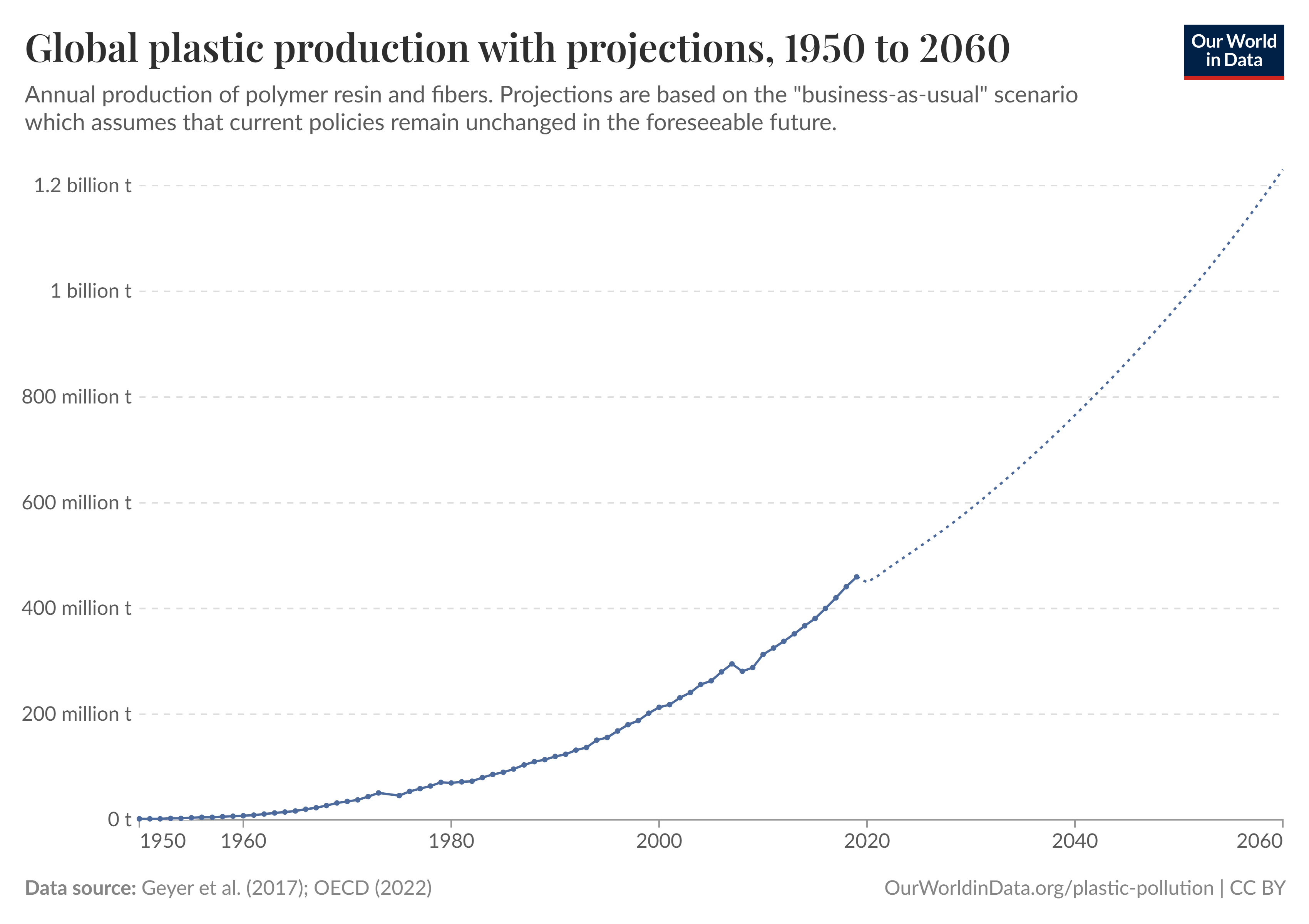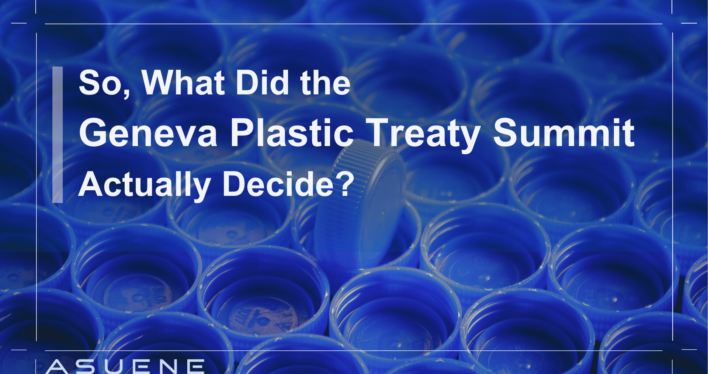- Article Summary
-
Introduction
The Geneva Plastic Treaty Summit, formally known as the fifth session of the Intergovernmental Negotiating Committee (INC-5.2), concluded last week with high expectations but little in terms of tangible outcomes. The conference was billed as a critical step toward drafting the world’s first legally binding treaty to end plastic pollution. Delegates from nearly 180 nations, scientists, NGOs, and industry representatives gathered in Geneva between August 5–15, 2025, aiming to align on strategies to curb the environmental and human health impacts of plastics.
Plastics are at the center of urgent global concern because more than 400 million tons are produced annually, with the vast majority incinerated, landfilled, or leaking into the environment. They break down into microplastics that contaminate ecosystems, harm marine and terrestrial wildlife, and enter human food chains, while their fossil-fuel intensive production also drives greenhouse gas emissions.

However, despite this mounting evidence, the session ended without a finalized treaty draft, reflecting deep divisions among countries over production limits, chemical regulation, and financing.
What Was on the Table
At the heart of the negotiations were three key issues: reducing virgin plastic production, regulating harmful additives and chemicals, and determining how financing should support implementation in developing countries. Many delegations, particularly from the European Union, Small Island Developing States (SIDS), and parts of Africa and Latin America, pushed for ambitious measures such as global caps on plastic production. These groups argued that without upstream interventions, recycling and waste management alone would fail to address the scale of the crisis. By contrast, oil-producing countries, including Saudi Arabia and the United States, resisted production caps, arguing instead for voluntary commitments and national-level flexibility. This fundamental divide framed much of the deadlock in Geneva.

Why the Talks Stalled
The consensus-based decision-making process became a major stumbling block. While many nations favored strong treaty language on production and chemical controls, a handful of powerful states blocked progress. The United States, under the Trump administration, firmly opposed binding caps on production and resisted a strict regulatory framework for chemical additives. Saudi Arabia and other petrochemical exporters echoed this stance. This stalemate left negotiators unable to produce even a “clean” draft treaty text for future negotiations. Several delegates criticized the consensus rule, noting that it allows a few states to paralyze global efforts. The failure underscored the influence of petrochemical interests and the broader geopolitical divides shaping climate and environmental diplomacy.
| Country Group | Position on Production Caps | Position on Chemicals Regulation | Position on Financing |
|---|---|---|---|
| EU & Allies | Strongly support | Strongly support | Favor dedicated funds |
| US & Oil Producers | Oppose | Oppose binding limits | Prefer voluntary contributions |
| Africa & SIDS | Strongly support | Support strict controls | Demand robust financing |
| Latin America | Mixed, leaning supportive | Support controls | Seek funding support |
Reactions and Implications
The collapse of negotiations triggered widespread frustration among civil society groups and vulnerable nations. Environmental NGOs described the outcome as a “historic missed opportunity,” warning that continued delays worsen plastic’s toll on ecosystems, human health, and climate. Many delegations expressed concern that the lack of financing commitments undermines trust and equity in the process. Analysts noted that the setback could embolden industry lobbying while discouraging ambitious action from governments. At the same time, some countries vowed to continue pushing for ambitious measures, even if outside the consensus model. The calls to adopt alternative decision-making mechanisms, including majority voting, are growing louder and could shape the trajectory of the next negotiation round.
Conclusion
Despite high hopes, the Geneva Plastic Treaty Summit ended without agreement on the core elements of a binding treaty. The divisions over production limits, chemical regulation, and financing remain stark, reflecting broader global political and economic rifts. Yet, this does not mark the end of the process. Negotiators have signaled that talks will resume, although the timeline and financing for the next round remain uncertain. The setback in Geneva may force a reckoning over the consensus model and the influence of petrochemical interests. For now, the world’s first plastic treaty remains an unfinished promise, its future resting on whether countries can move beyond entrenched positions toward a shared vision of a plastic-free future.
Why Work with ASUENE Inc.?
Asuene is a key player in carbon accounting, offering a comprehensive platform that measures, reduces, and reports emissions. Asuene serves over 10,000 clients worldwide, providing an all-in-one solution that integrates GHG accounting, ESG supply chain management, a Carbon Credit exchange platform, and third-party verification.
ASUENE supports companies in achieving net-zero goals through advanced technology, consulting services, and an extensive network.


